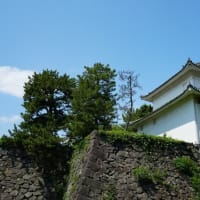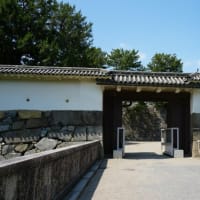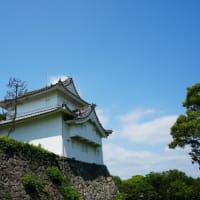The following is from an article by Katsumi Murotani in WILL, a monthly magazine now on sale, titled "If you don't like it, don't come," in which he argues that the overwhelming majority of public opinion in Japan does not want South Korea to come to the Tokyo Olympics.
He is one of the world's leading critics of Korea.
At the same time, he is also one of the "national treasures," as defined by Saicho.
Nevertheless, he is also one of the worst presidents in history, which his genuine article also reveals, Moon Jae-in.
It will convince every reader that his words and deeds are nothing but the outpouring of "abysmal evil" and "plausible lies."
The news programs of NHK and TV Tokyo reported the cancellation of the visit of such a person to Japan for the Tokyo Olympics as if the Japanese government had a problem with it.
Moreover, they did not report anything about the behavior of the Korean athletes who violated the Olympic Charter, which the IOC pointed out.
Are they even Japanese broadcasters?
These two stations frequently air Korean dramas and other such nonsense, and they are also friends.
Anyway, they hate Japan. They hate Japan so much that they can't help it. they don't want to see Japan being honored.
*I thought he wrote this about the true feelings of the editorial board of the Asahi Shimbun.*
If they can't stop Japan from standing on the spot of glory, let's smear the place with mud.
The South Koreans are coming to the Tokyo Olympics with all sorts of false accusations.
It is their mindset in a nutshell.
A Predictable Course
On September 8, 2001 (Japan time), at the International Olympic Committee (IOC) General Assembly held in Buenos Aires, Tokyo would be the host city for the 2008 Olympics.
It meant the failure of the first strategy to stop Tokyo, which South Korea had been secretly pursuing.
If this is the case, the second strategy will be to use false accusations to force Tokyo to cancel the Games if possible. If not, they will smear mud all over it.
From the moment it decided to hold the Olympics in Tokyo, it was a foreseeable course that South Korea would come up with all sorts of false accusations and say, "We will boycott!
Why does South Korea hate the Tokyo Olympics so much?
The most significant factor behind this is the "anti-Japanese spirit.
For more than 1,000 years, it has been accumulating in new fake histories added and overwritten.
The words and deeds that emanate from it are not light and soft minds that can be called "anti-Japanese consciousness.
"It is an entrenched mindset that embraces values such as "anti-Japan = absolute justice.
Whenever I make such an argument, a Japanese person starts by saying, "My friend in Korea is ......," puts on a "sensible face" and rushes out.
However, 'if a Korean friend of mine is pro-Japanese,' can that person change public opinion in Korea by saying, "I am pro-Japanese"?
He can't even state in public that "he is against anti-Japan."
To get a general understanding, we should start by accumulating a large number of public opinion and consciousness surveys, editorials in media with a large readership, and, in recent years, analysis of posts attached to articles distributed on the Internet.
Jealous, begging ATTACK!
I will back to the main point.
Along with the "anti-Japanese spirit," it is impossible not to mention the jealous nature of the Korean people.
It is a national trait that I became acutely aware of during my five years in Korea, where I ate and drank with Koreans almost every day.
Bullying in the workplace, which can be a characteristic of Korean corporate culture, is often triggered by jealousy.
"Bullying in the workplace is usually a tactic to isolate the other party by slander to the superior and make the other party come between the boss and the bully, alienating measure (called igandil), or ignoring the other party.
In this context, Korean diplomacy, which deploys "tattletale diplomacy" in the international community, schemes to separate Japan and the United States through bat-like behavior and propagates the idea that "Japan is isolated," seems to be a direct projection of Korean corporate culture.
"There is a saying on the peninsula, "If your cousin builds them a house, your stomach will hurt.
For Koreans, a close relative is an unconditional "begging" target. Therefore, when their begging is refused, they go around making false accusations.
Even if a close relative is willing to listen to their "begging," still it can't honestly congratulate them (or feel pain in their stomachs) when they achieve great success or stand on the stage.
From the signing of the Japan-Korea Basic Treaty in 1965 until then-President Lee Myung-bak's illegal landing on Takeshima (Korean name: Dokdo) and his insulting remarks to the Emperor shortly after that, Japan has listened to almost all of South Korea's begging.
In particular, the Democratic Party of Japan (DPJ) government of Prime Minister Yoshihiko Noda gave South Korea a currency swap of $70 billion. In formal terms, Japan can procure $70 billion from South Korea.
In reality, however, it is equivalent to providing South Korea with a $70 billion unsecured loan facility.
Japan went so far as to provide South Korea with a line of credit, and what South Korea did to Japan was to land on Takeshima illegally.
Is it that the South Korean president is an "ingrate" or that the Japanese Democratic Party administration was incompetent?
It should be seen as a joint effort of both parties.
The currency swap between Japan and South Korea ended without being renewed.
For South Korea, Japan is no longer the one to "beg."
The Park Geun-hye administration, which succeeded Lee Myung-bak's administration, has been engaged in what is known as "tattletale diplomacy," which is a form of defamatory diplomacy toward Japan, which is not surprising given the nature of the Korean people.
The Arrow of Desperation
The Japanese economy was immediately revitalized by "Abenomics."
The Park Geun-hye administration tried to call itself "Geunomics" to counter "Abenomics," but everything went wrong as it was forced to correct the artificial depreciation of the currency.
They hate Japan more and more.
Now Japan is trying to host the 2020 Olympics. Given the anti-Japanese sentiment and jealous nature of the people, the only thing to do is to "pull Japan's leg.
South Korea has been secretly trying to sabotage the international community. But it did not work.
Of the three countries (Japan, Turkey, and Spain) nominated to host the Games, Japan seems to be ahead of the rest.
So, Korea launched a "desperate arrow.
It was the day before the 2013 IOC General Assembly. Citing the danger of radioactive contamination, Japan announced that it would impose a total embargo on marine products from Fukushima and eight other prefectures in Japan.
The Great East Japan Earthquake and the subsequent accident at the Fukushima nuclear power plant occurred in March 2011. Immediately after that, the South Korean government banned importing agricultural products and some fish species from Fukushima Prefecture and its vicinity.
However, the number of radioactive materials discharged decreased with time. In addition, it is impossible for radioactive materials that have flowed out into the sea to increase in the ocean.
And yet, two years and six months after the accident at the Fukushima nuclear power plant, they decided to impose a total embargo on marine products from eight prefectures in Japan and announced it two days before the IOC General Assembly.
It aimed to impress the IOC members with the "dangerous Tokyo" and prevent Tokyo from hosting the 2020 Olympics.
What makes me laugh is that a week after the announcement, the Minister of Oceans and Fisheries Yun Jin-sook told the Diet that "from a scientific point of view, we believe that there is no problem at present" regarding the radioactive contamination of marine products caused by the Fukushima nuclear accident.
Even though they knew that there was no problem scientifically, they dared to ban imports. "Their goal was to "stop Tokyo.
The fact that they failed to do so caused resentment to build up in their hearts, which led to their subsequent extreme behavior and words - a typical Korean behavior pattern.
Those are two different stories. That's neither here nor there. This is one thing. That's another.
However, until after the 2018 PyeongChang Olympics, South Koreans refrained from saying or doing anything that would tarnish the Tokyo Olympics.
When Chung Sye-kyun, Speaker of the House of Representatives (then Prime Minister, now one of the ruling party's presidential candidates), met with Speaker of the House of Representatives Tadamori Oshima in Japan in June 2017, he said, "A lot of Japanese tourists will come to the Pyeongchang Olympics. If there are few, I can't let even one Korean go to the Tokyo Olympics.
However, many of them were probably concerned that irritating Japan would harm the PyeongChang Olympics.
The sinking of the USS Sewol and the subsequent impeachment of President Park Geun-hye has also made it difficult for Japan to do so.
It wasn't until the summer of 2019 that the "smear campaign" began in earnest.
It was launched in conjunction with the "No Japan Movement," protesting Japan's tightening of export controls (so-called "white removal").
A poll in early August 2019 showed that 68.9% of respondents favored boycotting the Tokyo Olympics.
Even then, Takeshima was shown on a map of Japan showing the "Outline of the Olympic Torch Relay Route" on the Tokyo Olympics website was an issue for South Korea.
However, this did not lead to a political "remove it or boycott," as is the case today.
The "smear campaign" revolved around the issue of radiation.
The South Korean Ministry of Foreign Affairs announced on August 19, 2019, that it would "continue to confirm with the Japanese side various matters, including the current status of the management of contaminated water at the Fukushima nuclear power plant and the treatment plan," marking the beginning of the government and ruling party's concerted "smear campaign" on the radiation issue.
The Chosun Ilbo (August 14, 2019) reported that "it took up the issue of contaminated water at the direction of President Moon Jae-in."
It is safe to say that the government and the ruling party cannot proceed with their offensive against Japan without the president's direction or confirmation of their intentions.
The ruling party's project team plagiarized the radiation dose map created by the Japanese environmental organization and tampered with it to develop and announce the "Japan Pollution Map."
The senator who was in charge of the team was later selected to be the chief political secretary of the presidential office.
The chief political secretary is the president's advisor.
The Korean Olympic Committee planned to airlift foodstuffs from South Korea, saying, "We can't let the Korean athletes eat food from Japan that is contaminated with radiation.
They plan to rent a hotel near the athletes' village, cook the food there, and provide it to the Korean team.
It is clearly a plan based on the assumption that there will be no boycott.
"Those are two different stories." is a favorite tactic of the Koreans, which is the origin of their brazen behavior.
A typical example of this is the self-serving separation of politics and economics: "Let's keep historical issues such as conscription and comfort women as historical issues, but let's separate economic cooperation from them and move forward aggressively.
Here, too, "smear campaign is a smear campaign, and our participation is another matter.
In January 2020, VANK, an anti-Japanese organization suspected of being an offshoot of the National Intelligence Agency (formerly the KCIA), released a poster depicting a torchbearer running in a radiation suit, which received a massive ovation in South Korea.
However, as the "Olympic Games of Radiation" campaign continued, the new coronavirus began to spread around the world.
In March 2020, it decided to postpone the 2020 Olympics.
The "smear campaign" campaign faded into the background.
This article continues.


















